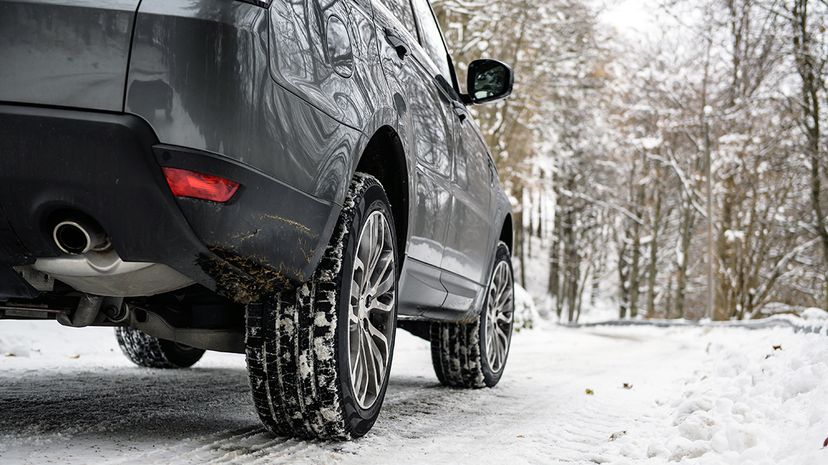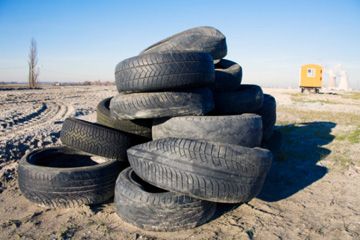If you post pictures of yourself outside wearing your one warm sweater on the one day a year that snow flurries fall in your neighborhood, you probably don't need winter tires. All-season tires will provide enough stopping power for you.
But if you live in an area that sees regular snowfall or icy conditions, then winter tires will provide the extra traction you'll need for daily driving. Tire manufacturers often cite 45 degrees Fahrenheit (7 degrees Celsius) as a benchmark. If your winters are, on average, below that, then snow tires will likely help. Experts recommend installing a full set of four winter tires to reduce the chance of skidding when the weather turns.
Winter tires are engineered for cold temperatures, but it's not the end of the world if you don't swap them out for all-season tires when weather warms. It isn't necessarily great either, though. Because winter tires use a softer rubber compound than standard tires, running them every day on dry pavement will wear them out faster, Margadonna says. And they don't provide optimum traction on warm, dry roads.
Of course, if you do use both winter and summer tires, you have to store the extra set when it's not in use. The Lilienthals simply store their sets of off-season tires for their four vehicles in a crawl space under their house.
Margadonna says a lot of people assume that if they have all-wheel drive or four-wheel drive, they don't need winter tires. "Those systems are only as good as the tires on the vehicle," he warns. While sending power to all four wheels does increase a vehicle's abilities in bad weather, it's the tires that give the car better starting traction, braking and cornering capabilities.



